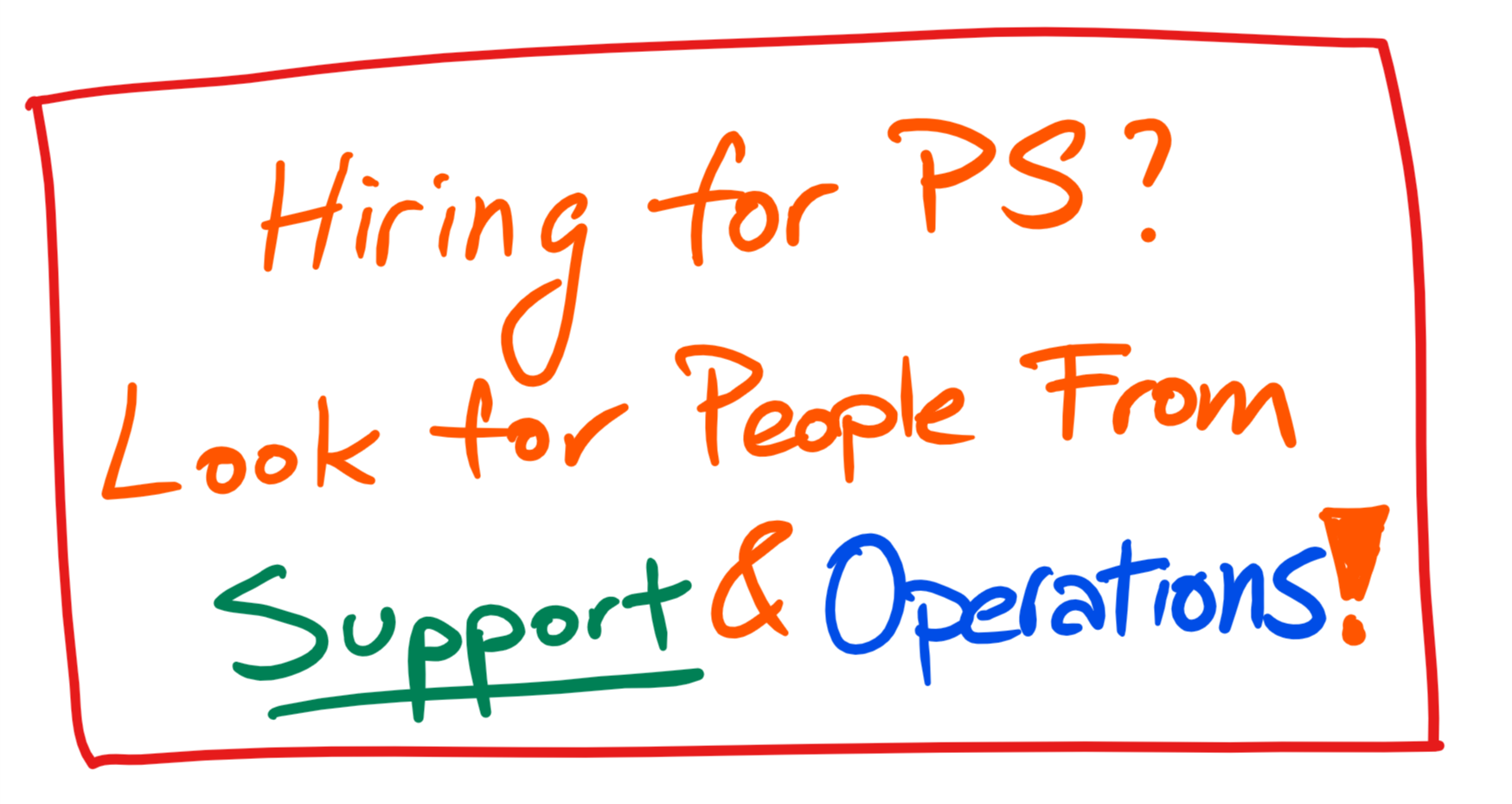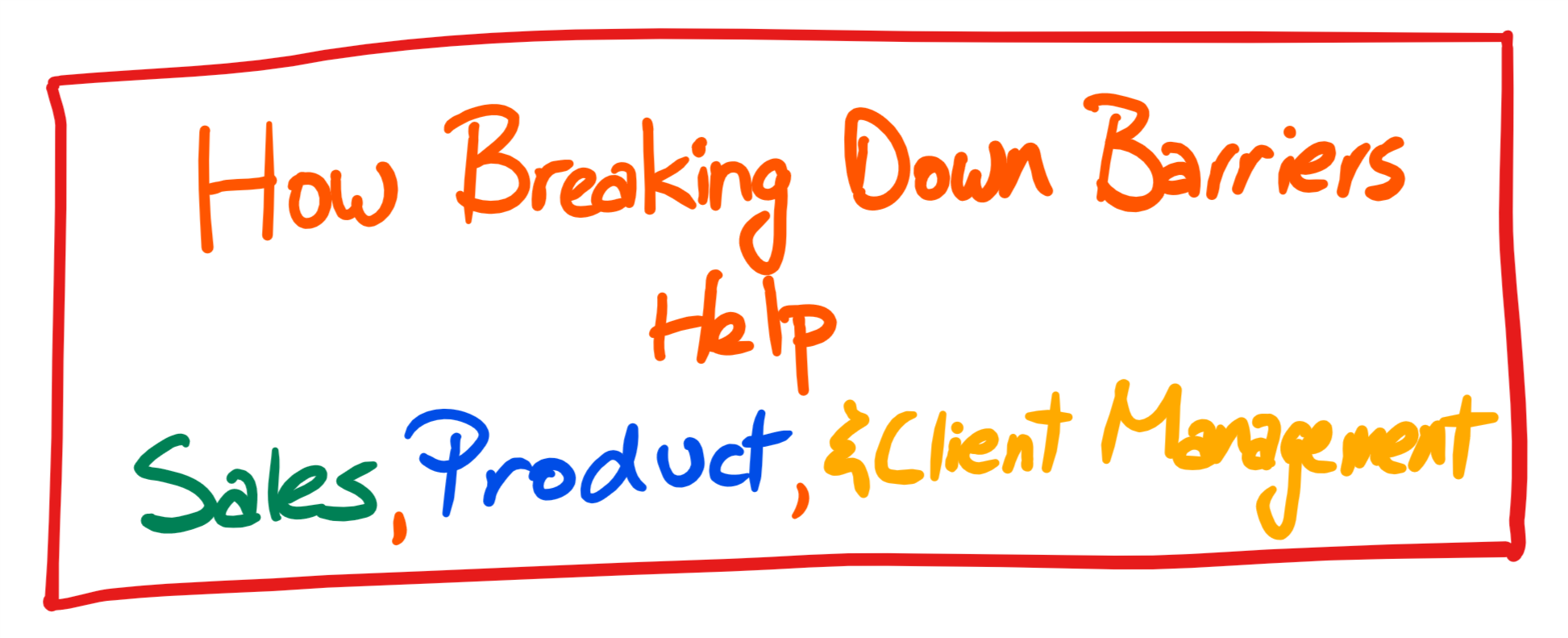Alright, it’s time to spread some positivity after the last article. If buy-in is so important for collaboration, then how do we get real clear with our teammates about our collective commitment before we embark on a solution? Here are 3 questions we should ask so we can get clarity on the problem, the effort, and the rollout of a solution.
How a Lack of Buy-In Can Destroy Any Chance of Collaboration
Silos are bad in organizations that need to collaborate to succeed. Kudos for trying to break down barriers between teams, but when the other side doesn’t buy in that a problem exists, any effort you put in to fix the silo problem is destined for failure. Here’s a personal story of effort, failure, and lessons learned.
Disagreeing Without Being Disagreeable - How We Can Be Great Dissenters
Groupthink is terrible for decision making, but dissent that make a team go around in circles is probably worse. We’ve all been a part of long meetings where no one agrees but nobody feels they’ve accomplished anything when they leave the room. Break the cycle by disagreeing without being disagreeable. Read on to find out how to dissent for a cause and to be a a great dissenter.
Developers are People Too - How to Make Friends and Gain the Trust of Those Who Build Your Solutions
Do you only speak to development teams when you want something done? That's a sign that you consider your colleagues as tools rather than partners in crime. If you keep treating development teams like an afterthought, you'll find less participation, less care, and even worse, they will be rooting for your failure.
Your development team deserves a seat at your solutioning table. Bring them in early, listen and act on their feedback, and help everyone understand the true objective of what you're trying to achieve for your client. Read more to find out why this is a great idea to foster trust between PS and Development teams.
Professional Altruism: How One Leader Inspired My One-on-Ones with my Own Team
Your very first one-on-one with your team shouldn't be a soul-sucking exercise. I experienced from one of my mentors an extremely memorable and impactful first meeting, and in the process learned a very valuable lesson: professional altruism. If you're in it to help others grow, then express that professional altruism from the start.
Promoted? It's Time to Drop Your Clients. Now.
It's the dilemma that all "doers" face when they become a leader: What's should I do with my existing client? If you think you can take on a leadership role and keep your entire client at the same time, you're going to yourself doing poorly on both. Read on to find out why it's not fair to your clients, your team, and yourself if you try to take on way too much.
From Doing to Leading: 4 Steps I Take When I Lead PS Teams
I never had a "leadership manual" when I started leading services teams. Every team is different, but with help from my mentors I started doing 4 things when I take a leadership role: Listening for team pains, defining a team "why", prioritizing team pains to tackle, and learning and adapting to start the cycle all over again.
3 Reasons Why I'm Passionate about Leading Professional Services Teams
The 4 Ways we Rationalize Putting PS Under Sales... and How to Respond to Them!
When we're asked why we should have PS report to Sales, we try really hard to rationalize that proposition. I've been asked to rationalize moves like this before, but I've always had a hard time trying to stand up for my team. I outline the 4 biggest ways organizations try to rationalize this terrible move, and how in real life they are completely irrational.
Is Your Services Team Reporting Into Sales? Here Are 3 Reasons Why That's a Terrible Idea.
4 Reasons why Support and Operations Folks are Great PS Hires
Hiring into a PS team is hard. Most of the time, we beat our heads at a wall to find candidates that do the same things we do. I've had great success at building PS teams with those from support and operations organizations. Read on to find out my 4 reasons why I think they make great PS colleagues!
Want to be a Great Trusted Advisor? Start By Being a Great Human.
Hiring for Professional Services? Look for "Fit and Drive" Instead of Skillsets.
Hiring for Professional Services teams tends to be difficult. We don't seem to find as many professional services candidates to fill our teams. Don't blame a smaller hiring pool of generalists! Start finding great people who share our passion to be great trusted advisors and our drive to learn and grow beyond a single discipline. Read to find out more!
Intense Training is Important for Technical Teams - Here's How to Do It
Teams that compete and win all have one thing in common: They train. They train hard, and they train often. So, why should our team be any different? Read on to find out how intense team training focusing on developing and improving our synaptic responses can be a great way to spread knowledge and build confidence amongst ourselves and our clients.
Start with Humility: Leading a Team When They're All Smarter than You
Why Asking Your Team to be "More Positive" Turn Good Meetings into Terrible Ones
When we start our meetings with asking your team to "stay positive", we are setting the groundwork for terrible discussions. Why is that? Read on to find out why a simple request is a powerful order to stifle debate and dissent, and what we as good leaders should say instead of foster true honesty and collaboration.
What is Pattern Recognition and Why You Should Do it More Often
Why is pattern recognition important for services teams? How does our pattern recognition help our organization figure out anticipatory problems? Where do we get started? We dive into the 3-step process on how professional services teams can take our learnings, make it relevant, and affect positive change for our clients.
4 Tested Ways For Amazing Collaboration with Sales & Product
Part III on our series on breaking down barriers. We all know why it's a good idea to work more closely with our colleagues, and how we all benefit. This week, I lay out 4 concrete exercises that you can run with your sales and product teams to build rapport, learn from one another, and contribute to each other's success.


















